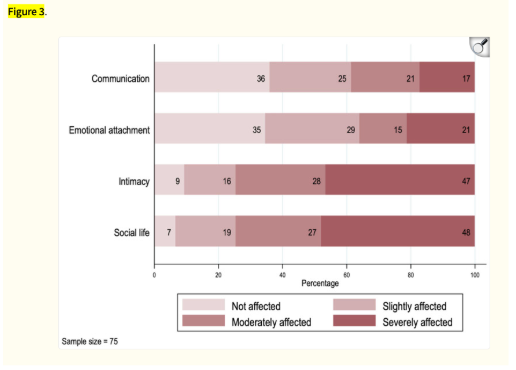The Fractured Family: Psychosocial and Economic Burdens of Childhood Blood Cancer in Chile
- Evergreen Chapter
- Jun 8, 2025
- 4 min read
Updated: Jun 13, 2025
Main Information: Title: The Psychosocial Burden of Families with Childhood Blood Cancer Author(s): Janya Kumar Publication Date: January 5, 2022 Source (Journal, Magazine, Website, etc.): Pubmed Central Finding: Abstract:Childhood blood cancers, particularly leukemia, represent a significant public health challenge, impacting not only pediatric patients but also their families. This study examines the multifaceted psychosocial and economic challenges encountered by Chilean families affected by childhood blood cancers. Drawing upon survey data from 90 families, we analyze disruptions in emotional well-being, familial relationships, and socioeconomic stability. Our findings underscore the urgent need for comprehensive support systems that integrate mental health resources with financial assistance, addressing the holistic needs of these vulnerable families. Introduction:Childhood cancer is a traumatic experience, marked by distress, pain, and profound disruptions to daily life. While medical advancements have improved survival rates, the psychosocial costs associated with childhood cancer often remain unaddressed. In Chile, cancer is the second leading cause of death for children ages 5-15. Leukemias constitute the most prevalent and resource-intensive pediatric cancers. Beyond direct medical expenses, families face a complex web of indirect costs (e.g., lost income) and intangible psychosocial burdens (e.g., emotional suffering). 
Methods:This study employed a 20-minute phone survey in collaboration with UAI Metrics at the Universidad Adolfo Ibáñez School of Psychology. Participants were recruited through parent liaisons, social media campaigns, and snowball sampling. The survey instrument explored socio-demographic characteristics, impacts on family dynamics, and caregiver labor market outcomes. A socioeconomic status (SES) proxy was constructed based on health insurance affiliation and region of residence, reflecting Chile's centralized healthcare system. Ethical approval was obtained from the Universidad Adolfo Ibañez Institutional Review Board. Conclusion: Childhood blood cancer inflicts multifaceted hardships on families. As survival rates improve, it is crucial to address affected families' psychosocial and economic needs. This study advocates for comprehensive support systems that prioritize mental health, financial stability, and family well-being. By translating research into practice, we can enhance the resilience of families navigating the challenges of childhood blood cancer. Family Impact: The majority of families reported a significant negative impact following a child's cancer diagnosis. As seen in Table 2, 42% reported a "moderate impact" and 40% an "intense or very intense impact." This extended to significant disruptions such as:
Emotional Well-Being: Patients: The study revealed significant emotional distress among pediatric patients:
Siblings Siblings faced unique challenges, marked by:
Caregivers The primary caregiver (92% mothers) faced substantial emotional and relational challenges:
 Socioeconomic Impact: Childhood cancer exerted a substantial impact on caregiver employment. This included:
Interestingly, SES was not significantly associated with overall psychosocial impact, implying that the challenges associated with childhood blood cancer affect families across all economic strata (Table 6). However, low SES was correlated with a lower likelihood of reporting sibling-parent relationship problems. This may reflect underreporting, or differential coping mechanisms within lower-income families. Policy Implications and Recommendations: Childhood cancer exerted a substantial impact on caregiver employment. This included:
Limitations::The authors acknowledge several limitations:
|
Works Cited
Borrescio-Higa, Florencia, and Nieves Valdés. “The Psychosocial Burden of Families with Childhood Blood Cancer.” International Journal of Environmental Research and Public Health, vol. 19, no. 1, 5 Jan. 2022, p. 599, www.ncbi.nlm.nih.gov/pmc/articles/PMC8744617/, https://doi.org/10.3390/ijerph19010599.
Rao, Vasudha N., et al. “Inception of a Pediatric Cancer Caregiver Support Group Guided by Parental Needs.” Cancer Reports, 6 June 2021, https://doi.org/10.1002/cnr2.1469. Accessed 8 Aug. 2021.





Comments